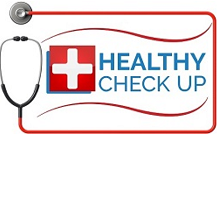Do You Have Thyroid Disease? Check Your TSH | Healthcare Blood Test Store
Check your own TSH level. This blood test is important to your healthcare wellness check, because it measures your level of thyroid stimulating hormone (TSH). Health care providers use this test to diagnose problems affecting the thyroid. Your thyroid is a butterfly-shaped gland located near the base of your throat above your collarbones. The thyroid makes two hormones, T3 and T4 that affect your energy levels, mood, weight, and other important parts of your health. The pituitary gland in your brain makes a chemical called TSH, which triggers your thyroid to make T3 and T4. When your pituitary gland produces too much or too little TSH, this can cause your thyroid to be overactive (hyperthyroidism) or underactive (hypothyroidism).
What are the symptoms of thyroid problems?
Symptoms of hyperthyroidism include:
- Anxiety
- Irritability
- Weakness in the arms and legs
- Insomnia
- Hand tremors
- Sweating
- Low tolerance for heat
- Irregular heartbeat
- Fatigue
- Unexplained weight loss
- More frequent bowel movements than usual
- Eye irritation or bulging eyes, which are symptoms of Graves' disease, a common cause of hyperthyroidism
- Menstrual irregularity
- Enlarged breasts and erectile dysfunction in men
Symptoms of hypothyroidism include:
- Fatigue
- Low tolerance for cold
- Weight gain
- Hair loss
- Eye swelling
- Slower heart rate
- Shortness of breath
- Constipation
- Menstrual irregularity
- Loss of consciousness, although this is rare
Health care providers may also check TSH levels when diagnosing depression and dementia.
What other blood tests might I have along with this test?
In addition to T4, you may have other blood tests of thyroid-related substances, including: T4, Free T4, T3, and Free T3.
Thyroglobulin, which helps produce and store thyroid hormones
TSH receptor-stimulator antibodies, which is used to diagnose Graves' disease. Thyroid antiperoxidase antibodies and thyroglobulin antibodies, which are used to diagnose a condition called Hashimoto's thyroiditis.
What do my blood test results mean?
Many things may affect your lab test results. These include the method each lab uses to do the test. Even if your test results are different from the normal value, you may not have a problem. To learn what the results mean for you, talk with your health care provider.
The normal range for TSH varies by lab, but the usual range is 2 to 11 microunits per milliliter (mU/mL).
Low TSH may mean you have hyperthyroidism, and high TSH can mean hypothyroidism. The results of other thyroid tests can help to determine the cause.
Why do I need this blood test?
If you have unexplained symptoms or concerns for an illness, checking yourself for the presence or absence of a thyroid disease is only confirmed through a blood test.
Access to “Self” healthcare is now available anytime, through the Healthcare Blood Test Store online, where you can order your own blood test at an FDA approved lab location near your home or office nationwide!
Repeat your Pre-Paid blood test as often as you would like, without your doctor's order. Know your numbers to follow your health progress. Stay informed about your health changes, particularly when taking long-term medications, or following new life style changes to improve your health. A blood test is available for only $35.00 at www.healthcarebloodteststore.com
<script type='text/javascript'>
window.__wtw_lucky_site_id = 45890;
(function() {
var wa = document.createElement('script'); wa.type = 'text/javascript'; wa.async = true;
wa.src = ('https:' == document.location.protocol ? 'https://ssl' : 'http://cdn') + '.luckyorange.com/w.js';
var s = document.getElementsByTagName('script')[0]; s.parentNode.insertBefore(wa, s);
})();
</script>

